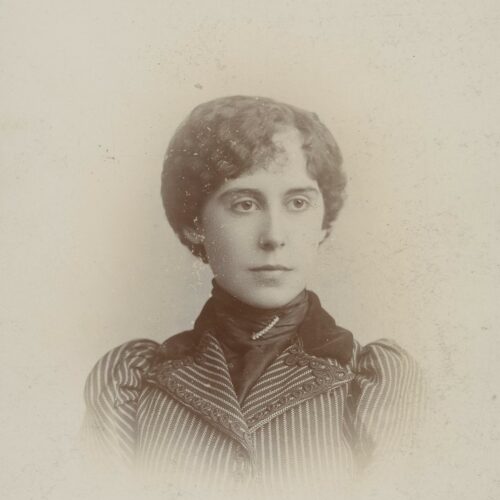

Emilie Holyoake-Marsh, daughter of George Jacob Holyoake, was an activist for worker’s rights and women’s suffrage; an advocate of co-operation, and a trade unionist. Like her father, Emilie believed in the ‘Piety of usefulness rather than the usefulness of Piety.’ A lifelong humanist, she was a member for many years of the West London Ethical Society, a founding group of the Union of Ethical Societies (now Humanists UK).
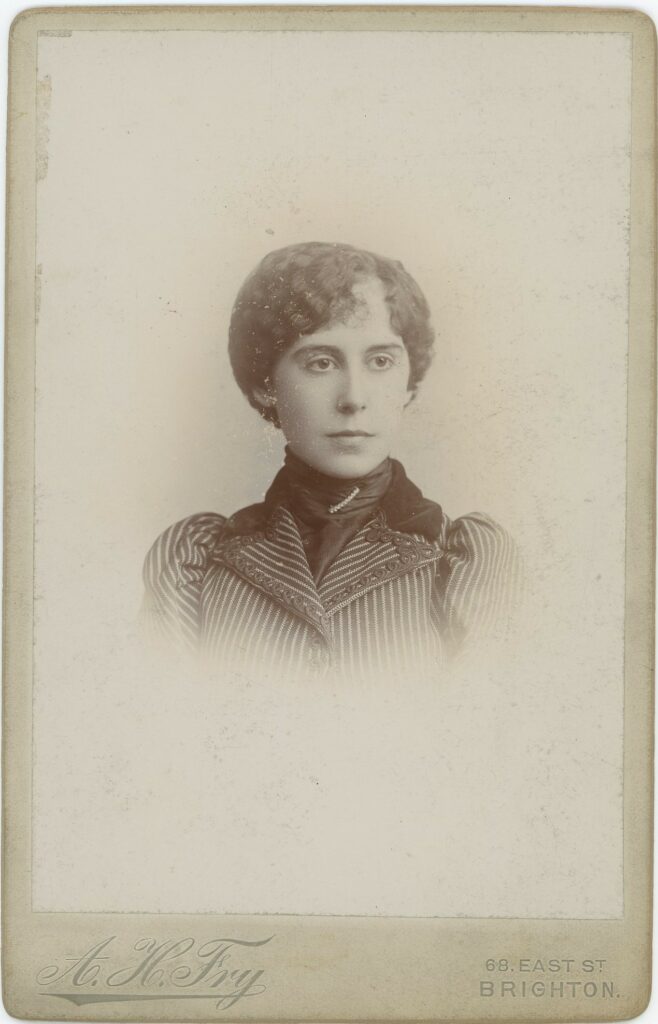
Emilie Ashurst Holyoake was born in London in 1861, and named for Emilie Ashurst Venturi: a campaigner for women’s rights, supporter of Italian independence, and the literary executor of Italian revolutionary Giuseppe Mazzini. Her parents were George Jacob and Eleanor Holyoake, née Williams. For many years, Emilie lived with her sister, Ellen, who had married Edward Praill, an accountant and fellow member of the Ethical movement.
Emilie has been described as the favourite child of her father, a devotee and historian of the Co-operative movement, accompanying him on lecture tours, acting as his amanuensis, and continuing his legacy of workers’ advocacy. In 1882, she accompanied him to America, where the two were entertained for ten days by lawyer and leading freethinker Robert Ingersoll. A Mr Henry Slack later commented admiringly in a letter to Holyoake that in ‘this case of your daughter Emilie we may congratulate heredity on its behaviour.’ In 1894, Emilie married Alfred Marsh, a brush-maker and the editor of Freedom, an anarchist newspaper. Marsh’s father had been a friend of George Jacob Holyoake’s and he, along with Robert Owen, was a significant influence on Marsh. Both Emilie and Alfred were members of the West London Ethical Society in 1896, the year the Union of Ethical Societies was formed, and remained so for a number of years. She later joined the Hampstead Ethical Institute, another key group in the Union, which became the Hampstead Humanist Society.
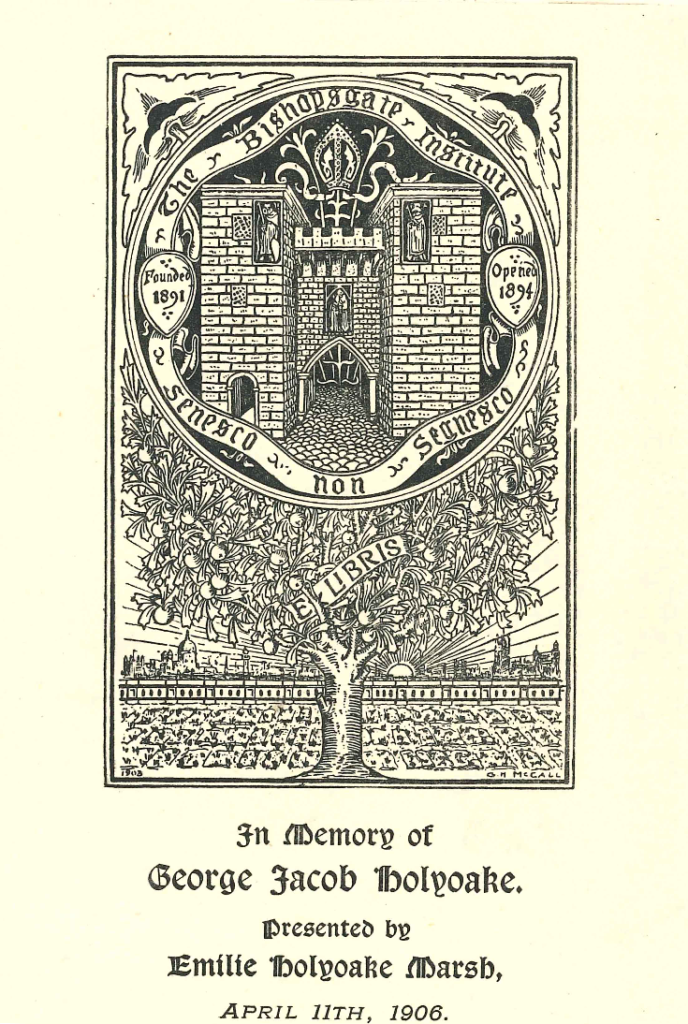
Emilie was active in various progressive causes. She was secretary of the Women’s Trade Union League for five years, as well as a committee member of the Women’s Co-operative Guild. In ‘The Need for Organisation Among Women’, Emilie argued for the importance of trade unions for women workers, who might otherwise remain at risk of accepting through ignorance poor (and illegal) working practices.
Everything which tends to educate women, and to raise their hopes of the possibility of a more comfortable existence, draws them towards the path of progress… for to be so shorn of hope and imagination as to be unable to picture what increased leisure would mean to them, is a deplorable state of things.
Co-operation and collective organisation were central to her vision for workers’ and women’s rights: ‘If a Government is to be moved’, she wrote, ‘only large bodies of people can do it.’ With her arguments in the 1890s, Emilie foreshadowed her later involvement in the cause of women’s suffrage, noting that ‘working women would specially welcome the vote, as legislation touching their trade interests vitally affects their power of earning a livelihood.’ By 1913, she was on the executive committee of the National Union of Women’s Suffrage Societies (NUWSS), Highgate branch.
On his death in 1906, George Jacob Holyoake left
all his MSS. and letters to his daughter, Mrs. Emilie Ashurst Marsh… to keep or destroy as she may think fit, subject to reasonable opportunities for inspection by his other children.
Emilie deposited these papers with the Bishopsgate Institute archives, where they can be consulted today.
Emilie Holyoake-Marsh died on 12 October 1953 in Tonbridge, Kent.
True and lasting reform must come from below and not above.. let us endeavour so to assist the workers as to make it easier for them to help themselves.
Emilie Holyoake-Marsh
Emilie Holyoake-Marsh was not merely a footnote to her father’s legacy, but applied a feminist belief in the empowerment of women to her firm fight for trade unionism and co-operation. Like her father, and her fellow ethical society members, Holyoake-Marsh was motivated by her humanism, not by any religious faith, to work for reform and improve the quality of life for working people everywhere. These principles of social conscience, compassion, and action remain central to humanists and Humanists UK today.
Life and Letters of George Jacob Holyoake, Joseph McCabe, 1908
‘The Need of Organisation Among Women’ in Workers on their Industries, 1896, ed. Frank W. Galton
National Co-operative Archive | Co-operative Heritage Trust
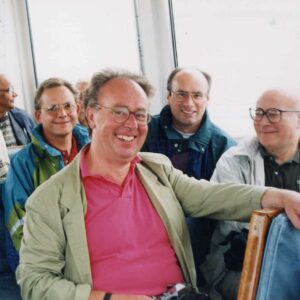
The obituary reproduced below was written by George Broadhead, and originally appeared in a 1997 issue of The Gay Humanist […]
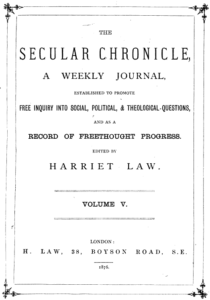
Harriet Law was a secularist and speaker, who also promoted women’s rights and socialist ideals. During the 1870s, Law’s house […]
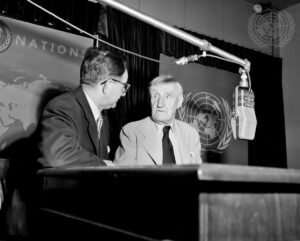
The big problem of today is how shall we adjust these tremendous new forces so that they can be harnessed […]
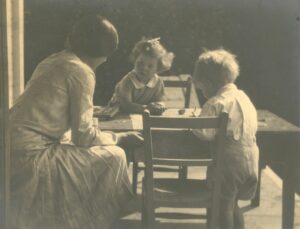
Telegraph House stood on the West Sussex Downs, very near to the highest point called Beacon Hill… It stood out […]